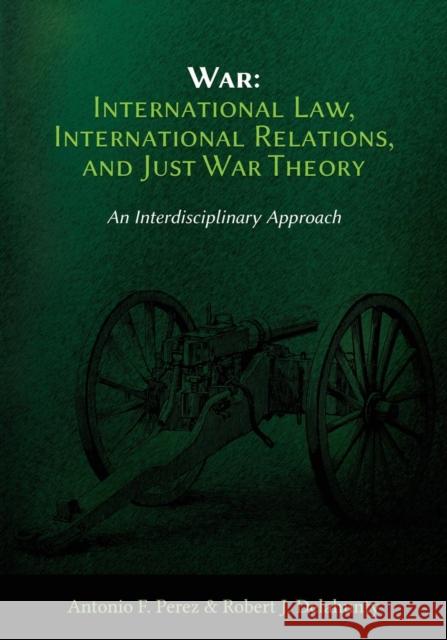War: International Law, International Relations, and Just War Theory - An Interdisciplinary Approach » książka
War: International Law, International Relations, and Just War Theory - An Interdisciplinary Approach
ISBN-13: 9781600422898 / Angielski / Miękka / 2017 / 834 str.
War: International Law, International Relations, and Just War Theory - An Interdisciplinary Approach
ISBN-13: 9781600422898 / Angielski / Miękka / 2017 / 834 str.
(netto: 617,27 VAT: 5%)
Najniższa cena z 30 dni: 642,84
ok. 16-18 dni roboczych.
Darmowa dostawa!
This book presents a distinctive approach to the study of war and its law. It provides a vehicle for students from various disciplines -- historical analysis, international relations theory, law and economics, behavioral economics and psychology, science and technology (including the study of the environment), sociology, political philosophy, moral and ethical theory, and comparative religion -- to work together in addressing the cutting edge issues presented in the modern law of war.Practical activity in the law of war - in governments, international governmental and nongovernmental organizations, and elsewhere -- now requires an ability to understand the language of practitioners in other disciplines who participate in the formation of new norms and their application in the law of war; and practitioners in those other disciplines who participate in the formation and application of the law of war now also need to have an understanding of the distinctive features of international law as a separate discipline. Thus, much as war itself is too important to be left to generals, the law of war is too important to be left to international lawyers alone.The book can be used in research seminars in international law at law schools, graduate programs in these various disciplines, and even in advanced courses at the undergraduate level, with the goal of enabling students to develop interdisciplinary fluency in discussion of the case studies ranging from the Melian Dialogue to the Nuclear Weapons Advisory Opinion of the International Court of Justice.
This book presents a distinctive approach to the study of war and its law. It provides a vehicle for students from various disciplines -- historical analysis, international relations theory, law and economics, behavioral economics and psychology, science and technology (including the study of the environment), sociology, political philosophy, moral and ethical theory, and comparative religion -- to work together in addressing the cutting edge issues presented in the modern law of war.Practical activity in the law of war – in governments, international governmental and nongovernmental organizations, and elsewhere -- now requires an ability to understand the language of practitioners in other disciplines who participate in the formation of new norms and their application in the law of war; and practitioners in those other disciplines who participate in the formation and application of the law of war now also need to have an understanding of the distinctive features of international law as a separate discipline. Thus, much as war itself is too important to be left to generals, the law of war is too important to be left to international lawyers alone.The book can be used in research seminars in international law at law schools, graduate programs in these various disciplines, and even in advanced courses at the undergraduate level, with the goal of enabling students to develop interdisciplinary fluency in discussion of the case studies ranging from the Melian Dialogue to the Nuclear Weapons Advisory Opinion of the International Court of Justice.











